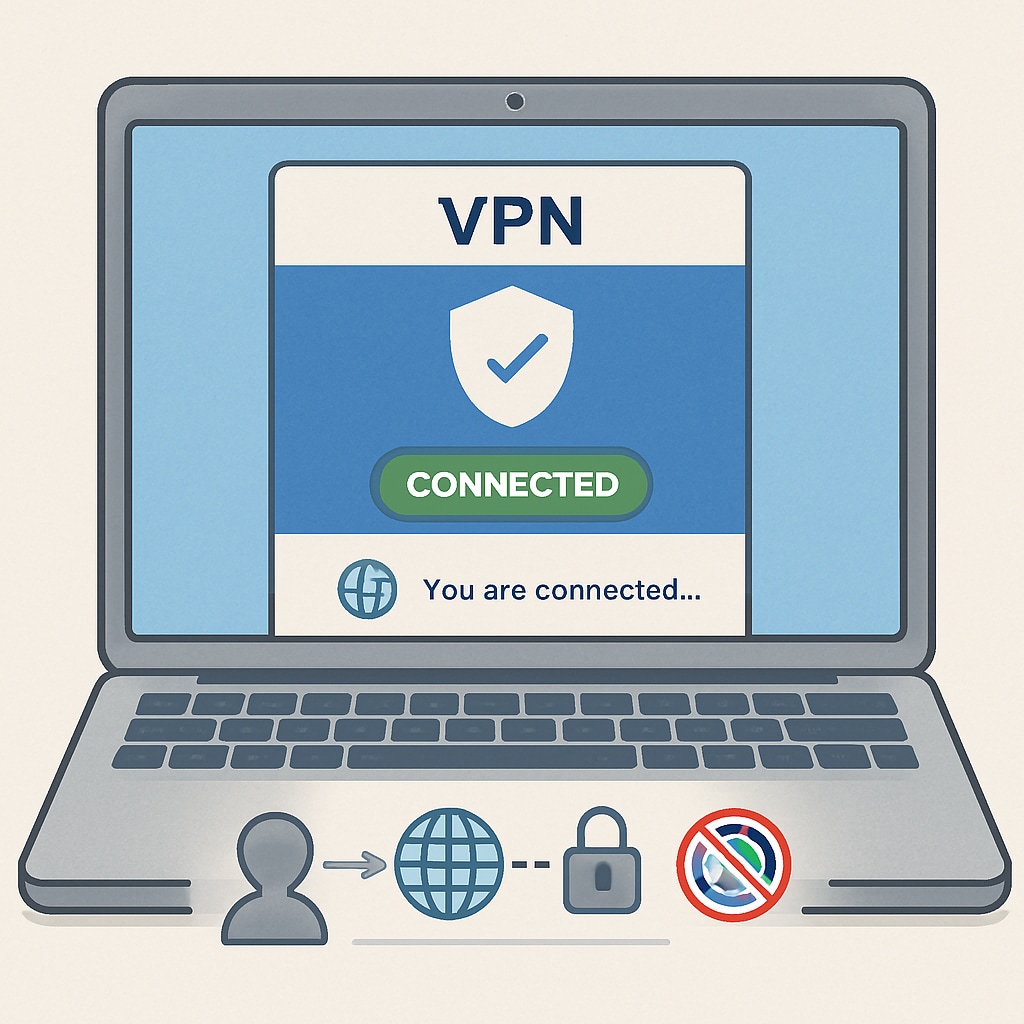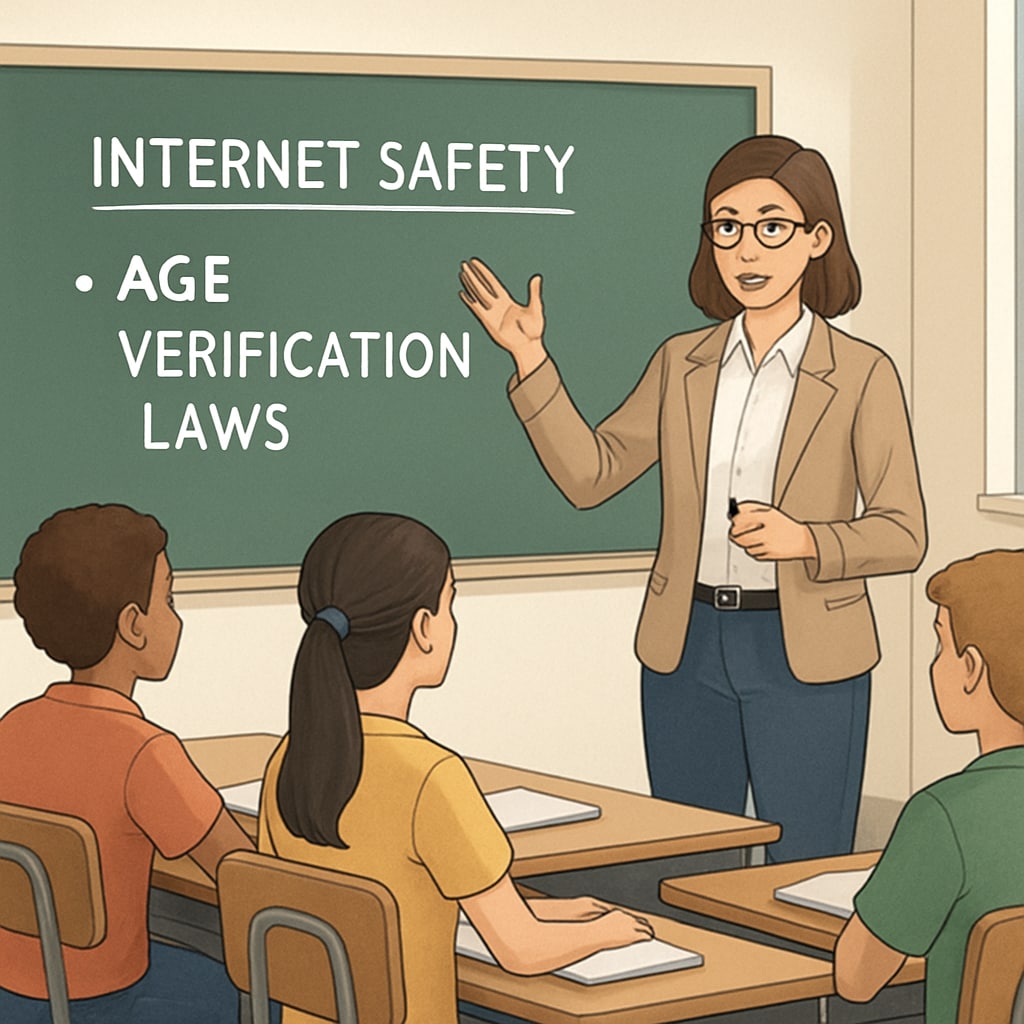The introduction of stricter age verification requirements for accessing adult content in the UK has sparked significant debate on its implications for digital safety. At the intersection of “age verification, VPN, UK regulations,” lies a critical challenge for K12 education: how to foster responsible digital citizenship while navigating these new rules. As students increasingly rely on the internet for learning and recreation, understanding the role of content filters, regulatory compliance, and tools like VPNs (Virtual Private Networks) becomes essential.
Understanding UK Age Verification Regulations
The UK government’s push for mandatory age verification for accessing adult content aims to safeguard minors from inappropriate material. This regulation requires online platforms to verify users’ ages using systems such as ID checks or credit card verification. While this initiative addresses a valid concern, it has also led to unintended consequences. For example, many users bypass age restrictions using VPNs, which mask a user’s location and IP address, thereby circumventing content filters.
For educators, this creates a dual challenge. On one hand, they must teach students the importance of adhering to online regulations. On the other, they need to address the ethical and practical implications of VPN use, which can undermine the effectiveness of these age checks.

VPNs: A Tool for Privacy or a Gateway for Bypassing Rules?
VPNs are primarily marketed as tools for safeguarding privacy and enabling secure browsing, particularly in regions with heavy internet censorship. However, in the context of age verification laws, VPNs can also be misused to access restricted content. For K12 students, this raises questions about the balance between privacy rights and legal compliance.
Educators must address the following key points when discussing VPNs with students:
- Legitimacy: Explain the legitimate uses of VPNs, such as protecting personal data on public Wi-Fi networks.
- Ethics: Discuss the ethical implications of bypassing content filters and the broader societal impact of undermining regulations.
- Consequences: Highlight the risks of accessing unregulated content, such as exposure to malware or harmful material.
By integrating these discussions into digital literacy curricula, schools can empower students to make informed decisions about VPN use.
Incorporating Digital Safety into K12 Education
To address the complexities introduced by regulations like age verification laws, K12 schools must prioritize digital safety education. This includes teaching students about appropriate online behavior, understanding content filters, and the significance of regulatory compliance. Below are some strategies for educators:
- Interactive Workshops: Conduct workshops that simulate real-world scenarios involving age verification and VPN use. This can help students understand the practical implications of these tools and rules.
- Collaborative Discussions: Encourage open discussions on the ethical and legal aspects of internet use. Include case studies to illustrate both positive and negative outcomes.
- Parental Involvement: Provide resources and training for parents to help them understand age verification regulations and guide their children appropriately.
- Partnerships with Tech Providers: Collaborate with technology companies to provide age-appropriate tools and resources for students.
By incorporating these strategies, schools can help students navigate the digital world responsibly while adhering to regulations.

The Future of Digital Literacy in a Regulated Internet
As digital regulations evolve, K12 education must adapt to equip students with the skills they need to thrive in a technology-driven society. The intersection of age verification laws, VPN use, and online content compliance is just one example of the challenges educators face. However, it also presents an opportunity to foster critical thinking, ethical awareness, and digital resilience among students.
Ultimately, the goal is to create a generation of digital citizens who understand not only the benefits of the online world but also their responsibilities within it. By addressing the complexities of regulations like the UK’s age verification laws, educators can play a pivotal role in shaping a safer and more informed internet landscape.
Readability guidance: This article uses concise paragraphs, lists, and clear transitions to enhance readability. Overarching themes are supported with actionable strategies to ensure practical takeaways for educators.


